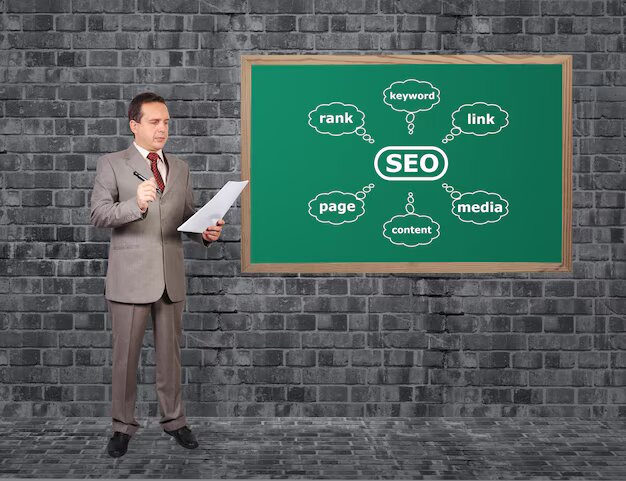
Can Social Media Signals Directly Impact Seo Rankings?
Yes, social media signals can impact SEO rankings. They influence website visibility and traffic.
Social media has become a powerful tool for businesses. It connects brands with their audience. But does it directly impact SEO rankings? This question sparks much debate among marketers and SEO experts. Social media signals, like shares, likes, and comments, do not directly influence search engine algorithms.
Yet, they play a crucial role in driving traffic and engagement. This, in turn, can indirectly boost your SEO. The relationship between social media and SEO is complex. Understanding it can help enhance your overall digital strategy. Let’s explore how social media signals might impact your SEO efforts.
Introduction To Social Media Signals
Understanding social media signals is important for your SEO strategy. These signals can influence how search engines rank your website. This section will introduce you to social media signals and their impact on digital marketing.
Definition And Examples
Social media signals refer to engagement metrics from social platforms. These include likes, shares, comments, and mentions. For example:
- Facebook likes and shares
- Twitter retweets and mentions
- Instagram likes and comments
These actions show that users find your content valuable. Search engines may consider this user engagement when ranking your website.
Importance In Digital Marketing
Social media signals play a key role in digital marketing. They help boost your online visibility and drive traffic to your site. Here are some benefits:
- Increased website traffic from social platforms
- Improved brand awareness and reputation
- Higher user engagement and content sharing
By leveraging social media signals, you can enhance your SEO efforts. Engaging content on social media can lead to more backlinks and higher search engine rankings.
How Search Engines Use Social Media
Social media signals can impact SEO rankings. Search engines analyze these signals to determine content relevance. This section explores the role of social media in search engine algorithms and its influence on SEO.
Search Engine Algorithms
Search engines like Google use complex algorithms to rank websites. These algorithms consider various factors, including social media signals. Social media activity can indicate the popularity and relevance of content. When a webpage gets shared, liked, or commented on frequently, search engines take notice. This social engagement can enhance the page’s SEO value.
For example, a blog post that gets many shares on Facebook may rank higher. This is because it signals to search engines that the content is valuable. Search engines aim to provide users with the best content. Social media signals help them achieve this goal.
Direct Vs. Indirect Influence
Social media signals have both direct and indirect effects on SEO.
| Type of Influence | Description |
|---|---|
| Direct Influence | Search engines directly use social signals to rank content. |
| Indirect Influence | Social engagement leads to backlinks and traffic, boosting SEO. |
Direct Influence: Social media signals can impact rankings directly. For instance, a tweet with a link to your site can boost its visibility. Search engines may consider this link as a sign of content relevance. A higher number of social signals can improve the content’s position in search results.
Indirect Influence: Social media also affects SEO indirectly. Content shared on social platforms can attract more visitors. Increased traffic can lead to more backlinks from other websites. These backlinks are crucial for SEO. They signal to search engines that your content is authoritative and trustworthy.
In summary, social media signals play a significant role in SEO. Search engines use these signals to gauge content relevance and popularity. By understanding the direct and indirect influence of social media, you can better optimize your SEO strategy.
Impact Of Social Media On Brand Visibility
Social media has become a crucial part of our daily lives. It offers platforms where people can share, comment, and engage with content. This dynamic environment has a significant impact on brand visibility. Social media signals can influence how often a brand appears in search results. They help create a strong online presence.
Increased Engagement
Social media platforms foster increased engagement. Users can like, share, and comment on posts. This activity signals to search engines that your content is valuable. More engagement means higher visibility. Search engines notice this and may rank your site higher.
Engagement also builds a community around your brand. A strong online community means more people will see and share your content. This creates a ripple effect. More engagement leads to more visibility.
Content Sharing
Content sharing is another key factor. When users share your content, it reaches a wider audience. This can lead to more traffic to your site. Search engines consider this a positive signal. They see your content as valuable and relevant.
Shared content often gets linked back to your site. These backlinks are crucial for SEO. They tell search engines that your site is trustworthy. As a result, your rankings may improve. The more your content is shared, the better your SEO could be.

Correlation Vs. Causation In Seo Rankings
Understanding the difference between correlation and causation is crucial in SEO. Many believe social media signals directly impact SEO rankings. But is that really true? Let’s dig deeper into this concept.
Analyzing Data Trends
Studies show a strong correlation between social media signals and high search rankings. Websites with many social shares often rank higher. Does this mean social media causes better rankings? Not necessarily.
High-ranking content often gets more social shares. Popular content gets noticed and shared more often. This makes it hard to say if social shares cause the high rank.
Common Misconceptions
Many assume more social shares directly boost SEO. This is a common misunderstanding. Google has stated they do not use social signals as a ranking factor.
Social media can still help SEO indirectly. It can drive traffic to your site. More traffic can lead to better engagement metrics. And better engagement can improve rankings.
Understanding these nuances can help in creating effective strategies. Focus on producing valuable content. Aim for genuine engagement rather than just chasing social shares.
Case Studies Of Social Media Impact
Social media signals can play a significant role in improving SEO rankings. Companies and brands have leveraged social media to boost their online presence. Here, we will explore some case studies that highlight the impact of social media on SEO rankings.
Successful Campaigns
Many brands have executed successful campaigns using social media. These campaigns have led to noticeable improvements in their search engine rankings.
| Brand | Campaign | SEO Impact |
|---|---|---|
| Brand A | Hashtag Challenge | Increased backlinks by 30% |
| Brand B | Video Series | Boosted organic traffic by 25% |
| Brand C | Engagement Contest | Improved keyword rankings by 20% |
Lessons Learned
Several key lessons can be drawn from these case studies. Brands can adopt these strategies to enhance their SEO efforts.
- Engagement Matters: High engagement levels on social media can lead to more backlinks and shares.
- Consistent Content: Regularly posting quality content keeps the audience engaged and improves visibility.
- Use of Hashtags: Relevant hashtags can boost the reach of your posts, leading to higher traffic.
- Visual Content: Videos and images tend to attract more attention and can improve user interaction.
- Community Building: Engaging with your audience builds trust and encourages organic sharing.
By studying these examples, businesses can understand the importance of integrating social media into their SEO strategy. Consistent and engaging content, along with a strong community, can lead to significant improvements in search rankings.

Optimizing Social Media For Seo
Optimizing social media for SEO can improve your website’s visibility. Social media signals, like shares and likes, may not directly impact SEO rankings. Yet, they play a crucial role in enhancing your overall online presence. This section will cover best practices and tools to leverage social media for SEO benefits.
Best Practices
Consistency is key. Post regularly on your social media platforms. This keeps your audience engaged and attracts new followers. Use relevant keywords in your posts. They help search engines understand your content better.
Engage with your audience. Reply to comments and messages promptly. This builds a loyal community around your brand. Share valuable content that your audience finds useful. Quality content gets more shares and interactions.
Optimize your social media profiles. Use clear and concise descriptions. Include a link to your website. This drives traffic to your site and improves its authority. Make sure your profile pictures and cover photos are high-quality and relevant to your brand.
Tools And Resources
There are several tools to help you optimize social media for SEO. Google Analytics tracks the traffic from social media to your website. This data helps you understand what content works best.
Buffer and Hootsuite allow you to schedule posts. This ensures your content goes out at the best times. Canva helps you create eye-catching graphics. Visual content often gets more engagement.
BuzzSumo identifies popular content in your niche. You can create similar content that resonates with your audience. SEMrush offers insights into your competitors’ social media strategies. This helps you stay ahead in the game.
Challenges And Limitations
Social media signals can influence SEO rankings, but there are challenges and limitations. Understanding these challenges helps to manage expectations. It also aids in creating better strategies.
Algorithm Changes
Search engines often update their algorithms. These changes can impact how social media signals are valued. What works today might not work tomorrow. Staying updated is crucial for success.
Algorithms are not transparent. Search engines do not reveal how they rank pages. This makes it hard to know the exact impact of social media signals. Speculations and assumptions fill the gaps.
Measuring Effectiveness
Tracking social media signals is tricky. Likes, shares, and comments are easy to count. But their real impact on SEO is hard to measure. Correlation does not mean causation.
Tools and metrics are limited. Existing tools cannot measure everything. They offer insights but not the full picture. The effectiveness of social media signals remains partly unknown.
Future Of Social Media And Seo
The future of social media and SEO is intertwined. The digital landscape keeps evolving. Social media signals impact SEO rankings indirectly. Keeping up with trends and predictions is vital. This ensures your content strategy remains effective.
Emerging Trends
New trends in social media are reshaping SEO strategies. User-generated content gains traction. It boosts engagement and authenticates brands. Short-form video content is on the rise. Platforms like TikTok and Instagram Reels dominate.
| Trend | Impact on SEO |
|---|---|
| User-generated content | Increases engagement and authenticity |
| Short-form videos | Higher engagement rates |
Voice search is growing fast. Optimizing content for voice queries is essential. This includes using natural language and question-based queries.
Predictions
Expect to see AI-driven content recommendations. Social media platforms will use AI for personalized content. This will affect how users interact with your content. Engagement rates may become a more significant SEO factor.
Influencer marketing will continue to grow. Collaborating with influencers can boost your SEO. Influencers have loyal audiences. Their recommendations carry weight. This can lead to higher engagement on your content.
- AI-driven content recommendations
- Increased focus on engagement rates
- Growth of influencer marketing
Social commerce will expand. Platforms like Instagram and Facebook are enhancing shopping features. This will drive traffic to websites and influence SEO.
To stay ahead, adapt to these trends and predictions. This ensures your SEO and social media strategies remain effective.

Frequently Asked Questions
Can Social Media Signals Boost Seo?
Social media signals can indirectly boost SEO. They increase brand visibility, drive traffic, and improve engagement. These factors can positively influence search rankings.
Do Likes And Shares Impact Seo?
Likes and shares don’t directly impact SEO. However, they can enhance content reach, driving traffic and potential backlinks, indirectly boosting SEO.
Is Social Media Important For Seo?
Yes, social media is important for SEO. It helps in content distribution, driving traffic, and building brand authority, indirectly influencing rankings.
How Do Social Signals Affect Seo?
Social signals affect SEO indirectly. They increase content visibility, drive user engagement, and can lead to more backlinks, improving SEO.
Conclusion
Social media signals may not directly impact SEO rankings. Yet, they play a role. They boost visibility and engagement. Increased engagement can lead to more backlinks. More backlinks can improve search rankings. Social media helps build brand awareness. A stronger brand can attract more organic traffic.
So, focus on social media strategies. They indirectly support your SEO efforts. Stay active on social platforms. Engage with your audience. Share valuable content. This way, you can see positive SEO outcomes.




